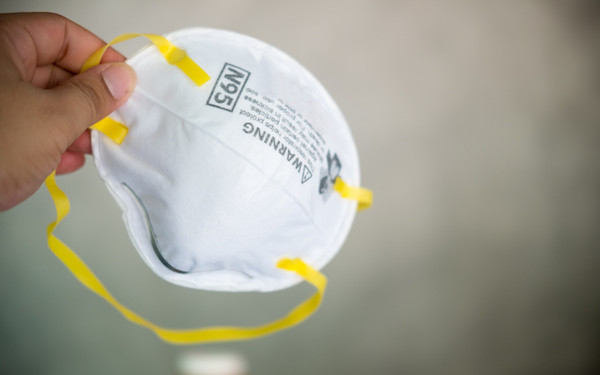
The government’s decision to prioritise hospitals for personal protective equipment (PPE) early in the pandemic meant social care providers and staff were left exposed and vulnerable, a report by MPs has found.
The damning report by the House of Commons public accounts committee (PAC) found the Department of Health and Social Care (DHSC) provided NHS trusts with 1.9 billion items of PPE between March 2020 and July 2020, equivalent to 80% of estimated need, but only provided the adult social care sector with 331 million items, 10% of estimated need.
The department said that its formal reporting arrangements did not identify any health or social care provider as having run out of PPE, and that its approach to social care was to provide an “emergency top-up” to their usual supplies, obtained from wholesalers.
However, social care representatives told the committee that they could not obtain sufficient PPE from their usual suppliers or the department.
Inflated costs and risk of substandard equipment
Independent providers’ body Care England said that care homes and home care services sometimes had to buy PPE at hugely inflated costs from suppliers they were unfamiliar with, running the risk of being sold substandard equipment. UNISON, meanwhile, said frontline staff were left distressed and anxious by having to use unfamiliar PPE.
Care England said it was only after the high number of deaths became clear that there was recognition that people in care homes were at the frontline of the pandemic. It also highlighted the high mortality rates among people with learning disabilities and told the committee that domiciliary care and learning disabilities services “appeared to be of a lower priority than other types of care when PPE was being distributed”.
The DHSC’s approach to supplying PPE for social care faced ongoing criticism last year, even after the department provided dedicated funding for adult social care to fight the pandemic through the infection control fund, launched in May 2020, as PPE was not among the specified uses for the grant.
It was only in September, when it published its winter plan, that the DHSC announced it would provide free PPE to care homes and home care providers, through its existing PPE portal, until March 2021. However, criticisms persisted on providers’ ability to get hold of sufficient quantities of PPE through this route.
Distress and fear ‘cannot be overstated’
Speaking about the committee’s findings, UNISON general secretary Christina McAnea said ministers forgot about social care in the rush to protect the NHS, and care staff were left without the PPE they needed, with deadly consequences.
“Care workers were forced make their own safety kit, buy it themselves or go without, putting themselves, their families and the people they looked after at huge risk. The distress and fear this caused cannot be overstated.
“The PAC makes clear many lives were lost because of government failings. There must be a public inquiry to hold those found lacking accountable for their inaction and learn lessons.”
However, McAnea said if one positive could come from such a tragic episode, it must be the chance to transform social care.
“Care of the elderly and the vulnerable should never have been cast out to a fragmented, dysfunctional private sector, major reform to create a national social care service mirroring the NHS is needed now.”
The committee’s chair, Meg Hillier, said frontline workers were left without adequate supplies, risking their own and their families’ lives to provide treatment and care.
“We’re at a dangerous new phase of the pandemic, in our third national lockdown with no defined end in sight [and] the government needs to acknowledge the errors and be better prepared.”
In response to the report, a Department of Health and Social Care spokesperson said: “We have been working tirelessly to procure, produce and deliver PPE to over 58,000 settings, protecting our health and social care staff on the frontline of this pandemic.
“As the public accounts committee recognises, the government faced significant challenges in having to rapidly procure PPE at pace in a competitive international market. Thanks to the combined effort of government, NHS, Armed Forces, civil servants and industry we have delivered over 8.1 billion items of PPE at record speed.
“We have a robust processes in place to ensure PPE meet the strictest safety and quality standards before being distributed to the frontline.”


 Bournemouth, Christchurch and Poole
Bournemouth, Christchurch and Poole  Hampshire County Council
Hampshire County Council  Lincolnshire County Council
Lincolnshire County Council  Norfolk County Council
Norfolk County Council  Northamptonshire Children’s Trust
Northamptonshire Children’s Trust  South Gloucestershire Council
South Gloucestershire Council  Wiltshire Council
Wiltshire Council  Wokingham Borough Council
Wokingham Borough Council  Children and young people with SEND are ‘valued and prioritised’ in Wiltshire, find inspectors
Children and young people with SEND are ‘valued and prioritised’ in Wiltshire, find inspectors  How specialist refugee teams benefit young people and social workers
How specialist refugee teams benefit young people and social workers  Podcast: returning to social work after becoming a first-time parent
Podcast: returning to social work after becoming a first-time parent  Podcast: would you work for an inadequate-rated service?
Podcast: would you work for an inadequate-rated service?  Family help: one local authority’s experience of the model
Family help: one local authority’s experience of the model  Workforce Insights – showcasing a selection of the sector’s top recruiters
Workforce Insights – showcasing a selection of the sector’s top recruiters 

 Facebook
Facebook X
X LinkedIn
LinkedIn Instagram
Instagram
Comments are closed.